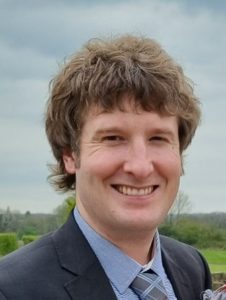Dr Lee A. Fielding (MRSC, MIMMM, FHEA) is a Senior Lecturer in Polymer Chemistry in the Department of Materials at The University of Manchester and his research group is based in the Sustainable Materials Innovation Hub within the Henry Royce Institute, where he is currently the Research Area Lead for Chemical Materials Design. He obtained an MChem in Chemistry from The University of Sheffield in 2008, which was followed by a PhD in 2012 from the same institution with Professor Steven P. Armes. He then worked as a Postdoctoral Researcher before taking up a Lectureship at The University of Manchester in 2015, where he is currently the Director of Postgraduate Taught Studies for Materials Science and Engineering and Programme Co-ordinator for the MSc in Polymer Materials Science and Engineering (PMSE). He is a committee member of the Joint Colloids Group and his research primarily involves the design, synthesis and applications of polymers and polymer colloids including research into sustainable waterborne coatings and adhesives, self-assembled colloidal materials and polymer-based materials for biomedical diagnostics and regenerative medicine.
Find more about his work via:
Website: Fielding Lab
Twitter @lee_fielding
Read Lee Fielding’s Emerging Investigator article http://xlink.rsc.org/?doi=10.1039/D2SM01534J
How do you feel about Soft Matter as a place to publish research on this topic?
Soft Matter is inherently interdisciplinary and a natural home for reporting research into the preparation and characterisation of hydrogel systems with improved strengths, tuneable functionalities, and responsive behaviour. It’s broad readership, reputation and the efficient publication process all make it a great place to publish our research.
What aspect of your work are you most excited about at the moment and what do you find most challenging about your research?
I am very excited about the utilisation of new approaches to design polymer colloids and how they can be used to tackle interdisciplinary challenges or real-world problems. These challenges may be in developing advanced materials for a more sustainable society or for use in areas such as biomedical diagnostics or regenerative medicine.
In your opinion, what are the most important questions to be asked/answered in this field of research?
As we transition towards a more sustainable society the development and adaptation of materials that are designed with sustainability in mind, whilst retaining or improving on functionality, is a huge challenge that raises a great deal of academic, industrial, and societal questions.
Can you share one piece of career-related advice or wisdom with other early career scientists?
Take the time to build your network! It really helps to share and learn from each other’s experiences, begin identifying and developing shared research interests, and ultimately make friends who also work in your discipline. I did this in part through firstly attending, and then organising, early career events such as the annual recent appointees in polymer science (RAPS) and early career colloids (ECCo) meetings.











